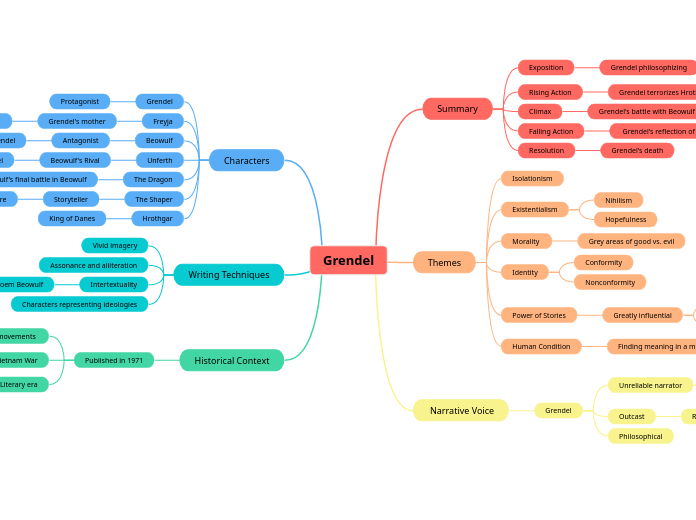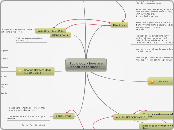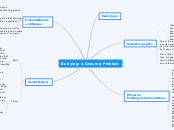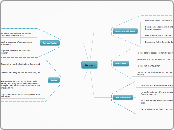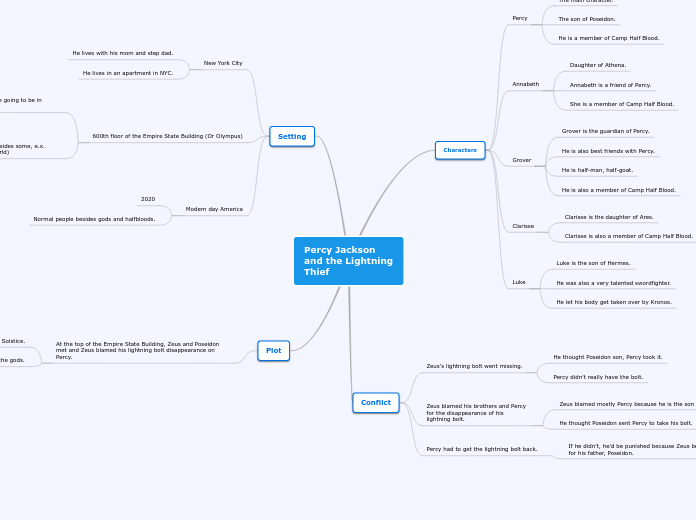Grendel
Historical Context
Published in 1971
Literary era
Modernism
Highly influenced by
philosophy
Vietnam War
Cynicism and protest
Counter cultural movements
Civil Rights and LGBT-centered issues
entering the mainstream
Nonconformity and rising
against authority
Writing Techniques
Characters representing ideologies
Intertextuality
Based on the poem Beowulf
Assonance and alliteration
Vivid imagery
Characters
Hrothgar
King of Danes
The Shaper
Storyteller
Influential figure
The Dragon
Beowulf's final battle in Beowulf
Wise and cynical
Unferth
Beowulf's Rival
Killed by Grendel
Beowulf
Antagonist
Foil to Grendel
Heroic
Freyja
Grendel's mother
Animalistic and detached
Protagonist
Narrative Voice
Philosophical
Outcast
Resentful
Unreliable narrator
Intense emotion
Struggles to grasp reality
Themes
Human Condition
Finding meaning in a meaningless world
Power of Stories
Greatly influential
Hrothgar's people
Identity
Nonconformity
Conformity
Morality
Grey areas of good vs. evil
Existentialism
Hopefulness
Nihilism
Isolationism
Summary
Resolution
Grendel's death
Falling Action
Grendel's reflection of his existence
Climax
Grendel's battle with Beowulf
Rising Action
Grendel terrorizes Hrothgar's kingdom
Exposition
Grendel philosophizing
Interactions with characters of
differing philosophies
